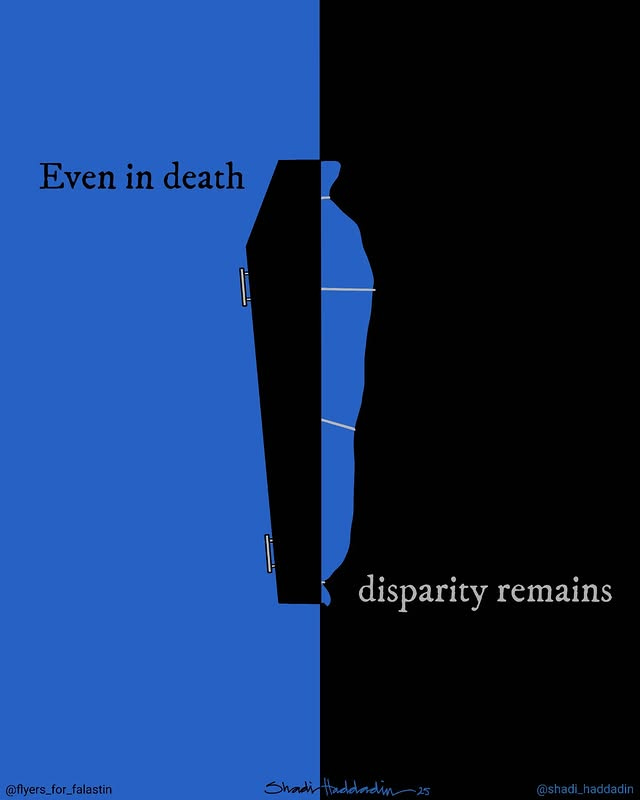I thought a lot about death ritual this week. Today is Ash Wednesday in the Christian tradition. Last week I learned that Octavia Butler’s gravesite is located in Altadena; her gravesite having survived the LA fires that her writings predicted. I yelled at my phone viewing the propagandized media coverage of the multiple hostage1 returns, where Palestinian life and death were disparaged. Death and ash and destruction are around us. And yet the rebellion against empire breathes new breaths each morning.
Ash Wednesday begins the annual Christian cycle of focusing on the cross. We practice rituals that remind us of Christ’s suffering and our complicity as harm doers in God’s good world. We discuss death. Christians often symbolize this journey through the ritual of ashes on our forehead, reminding us that “for dust you are and to dust you will return.”2
In seminary I had a Hebrew Bible professor who would point out that English translations of words like the “dirt” that the first human is made from and the “dust” ('apar/עפר) that we are bound to return to can make us feel we are made from nothing good, nothing generative. This way of translating disconnects us from life and separates us from Creation. But that’s not how dirt works! Dirt, dust, fertile topsoil…they are vital parts of a resurrection cycle of creation – from death and decomposition comes new life. Even in death, our bodies are creative, because we lay the nutrients for growing something new.
What would the death ritual of Ash Wednesday look like when viewing the soil in this way? When I arrived in Palestine on Ash Wednesday last year,3 I was encouraged by Palestinians to believe that there is something miraculous growing under that deadly rubble, and I continue to see it in each face that resists the death that empire brings. I saw it in a little Palestinian kid this week, reciting a poem that you should hear below.
Here is the transcription:
Do you think after you burned me, / and danced like the devil over my remains, /and left me for dust storms to bury me, / As kohl for the sun’s eye in the open plains.
Do you think that you have erased my identity / And wiped out my history and beliefs?
In vain you try…there is no demise for the rebel. / I am like the resurrection, I’m coming back one day.4
Death is all around us. And yet what we might imagine is possible on Ash Wednesday is: we are only beginning the process of composting into something new. Palestinians, and other resisters of empire teach us that in death, we are not dust. In death we demand it is not the end, but instead a rich place where life will grow. There is no demise for those who rebel against death itself. We owe it to those who have died to make something liberating out of our living.
From compost, we are, and to compost we return. We believe in a God that has not only suffered, but who created life after death. Our God does not end the story at the dust, but turns dusty death into the budding flower of Easter new life. There is no demise for a rebel like Christ, whose rebellion can live on in our persistent contestation of empire and greed.
Consider, this Lent, what you are planting in your liberation garden.
Today in Seattle, I’m doing ashes-to-go for folks walking on the street as a part of an action of the Boycott Chevron campaign. When I make the cross with the ashes of dead palms, with my thumb on a strangers forehead, I will say:
We came from the soil and we return to it.
Seeds grow with liberation.
Free Free Palestine!
Imagine, with me, the ritual of ashes. Cross yourself on your forehead as you whisper to yourself:
Remember that I am fertile soil and to fertile soil I shall return.
What seeds am I planting to grow in my place?
Amen.
I use this word to describe the Palestinians returned, as well as the Israelis.
On Ash Wednesday 2024, I had just arrived in Jerusalem for one of the first international delegations in solidarity with Palestinians, hosted by Sabeel Liberation Theology Center and the Palestine Justice Network of the PCUSA. I wrote a version of this post then for PJN. I am heading back to Palestine this April for Holy Week to co-lead another delegation! If you have the resources, you can support my family’s trip expenses here.
Here’s another version of this poem’s translation from Arabic.
![[the "rev" stands for revolution.]](https://substackcdn.com/image/fetch/$s_!YDEu!,w_80,h_80,c_fill,f_auto,q_auto:good,fl_progressive:steep,g_auto/https%3A%2F%2Fsubstack-post-media.s3.amazonaws.com%2Fpublic%2Fimages%2F19de1043-721c-42a6-9a31-1f20f5d9b0a6_976x976.png)
![[the "rev" stands for revolution.]](https://substackcdn.com/image/fetch/$s_!l189!,e_trim:10:white/e_trim:10:transparent/h_72,c_limit,f_auto,q_auto:good,fl_progressive:steep/https%3A%2F%2Fsubstack-post-media.s3.amazonaws.com%2Fpublic%2Fimages%2F7e16c521-1fc7-48e7-ab3e-58af9f9972e4_2370x494.png)

![[the "rev" stands for revolution.]](https://substackcdn.com/image/fetch/$s_!YDEu!,w_36,h_36,c_fill,f_auto,q_auto:good,fl_progressive:steep,g_auto/https%3A%2F%2Fsubstack-post-media.s3.amazonaws.com%2Fpublic%2Fimages%2F19de1043-721c-42a6-9a31-1f20f5d9b0a6_976x976.png)


Thank you for this! I think we desperately need ways of thinking about Ash Wednesday (and death, and the cross, and all the things) that go beyond typical evangelical Christian visions of sin and redemption/forgiveness. We are from fertile soil.
Thank you for this writing. It is such a helpful way to begin this season of Lent and the fertile soil that helps us grow and stand with others and share. Thank you!